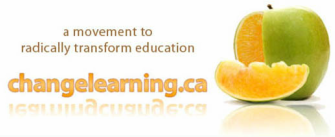Read more
|
With a constructivist viewpoint of learning and a commitment to experiential education and authentic outcomes, Sharon MacKenzie takes her middle school classes out of the school and into the world. From spending 2 months of the year in a seniors’ residence to raising thousands of dollars through developing and running a small business, the results are amazing – for the community as well as for the students.
Read more
0 Comments
When a dozen or so educators from Indianapolis traveled to Reggio Emilia, Italy, several years ago to study the famous constructivist approach in that city’s preschools, they came back prepared for more than project-based teaching — they came ready to decorate. Last fall, the group offered elementary school teachers a classroom makeover in the Reggio Emilia style, and Sharon Olson, a teacher at Winding Ridge Elementary School, immediately volunteered.
Read more In this article, grade four teacher Diane Petersen writes:
Ian’s work as a scientist began with a contradiction: “The scientists said that you can’t find any horny toads here. And I said, ‘My dad and I go out and catch them.’” The thirteen-year-old has now traveled to Idaho and California, where he and three classmates surprised working scientists by describing new discoveries about where the 3-inch-long lizards live and what they eat. Read more Rather than thinking of the brain as a computer, cognitive scientists now utilize a far more flexible, biological analogy, where the brain is seen as a unique, ever-changing organism that grows and reshapes itself in response to use. In this article, John Abbott and Terence Ryan discuss how emerging brain research that supports constructivist learning collides head-on with many of our institutional arrangements for learning.
The article first appeared in the November 1999 issue of Educational Leadership. A leading expert in motivation and personality psychology, Carol Dweck has discovered in more than twenty years of research that our mindset is not a minor personality quirk: it creates our whole mental world. It explains how we become optimistic or pessimistic. It shapes our goals, our attitude toward work and relationships, and how we raise our kids, ultimately predicting whether or not we will fulfill our potential. Dweck has found that everyone has one of two basic mindsets.
Read more We now understand that evolution has provided humans with a powerful toolkit of predispositions that go a long way in explaining our ability to learn language, cooperate in groups, solve problems, plan for the future and empathize with others. This evolutionary inheritance both empowers us and constrains us. We are born ready to learn, but our brains are wired to learn more effectively under certain conditions. Humans learn best when we ‘go with the grain of the brain’ instead of against it.
Imagine schools designed to work in alignment with everything we now know about how kids learn, grow and thrive. Read more Over and over again, studies have demonstrated that we memorize best when we analyze what we are learning, find patterns in it, and relate it to knowledge we already have. In other words, when we think about it. David Perkins, Senior Professor, Harvard Graduate School of Education
|
Categories
All
Archives
August 2015
|

 RSS Feed
RSS Feed
